|
|
 |
|
|
| MIZUNO GAIGO GAKUIN |
| Become a cosmopolitan through learning Japanese! |
|
Education of Japanese language and formation of characters are two pillars of Mizuno School for foreign students.
Mizuno School was established to offer quality Japanese language education for foreign students.
| 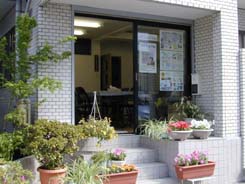 |
|
Globalization, co-existence and collaboration, and understanding of foreign cultures are the key for the world peace today.
Students studying in Japan are expected to actively participate in the future across the borders of countries and ethnic groups. Through teaching Japanese, we will cultivate the sense of awareness and viewpoint as a world citizen. We pledge ourselves that we will make efforts to develop their perspective as a cosmopolitan.
We will build up a foundation to keep freedom and rights of foreign students, and create the family-like atmosphere. We sincerely hope that our school will become home for students. |
|
Mizuno School aims at an open school to the area and to the world
as an “international exchange center.”
|
Director: Takae Mizuno
Career Summary
Graduated from Education Department of Chiba University
Taught at Chiba Prefectural/Public Schools
Member of Chiba Prefectural Administrative Scrivener
Manager of Mizuno International Legal Affair Office
| 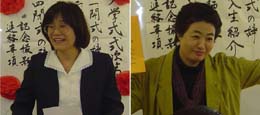 | | I am ready to support every aspect of Japanese life from a viewpoint of a consultant. I am specialized in international legal affairs for foreigners, including visa, nationalities, etc. I am confident that my qualifications and specialties are useful for supporting students from aboard. | |
Principal: Junko Kiyota
Career Summary
Graduated from Fukuoka Education University
Taught at Fukuoka Prefectural/Public Schools
Obtained master’s degree at Peking Language School
Japanese specialist at Peking Diplomacy School
Specialist at Chinese International Broadcasting Station
| 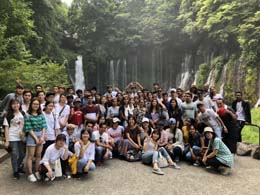 | | I would make students’ life enjoyable and meaningful through providing good support. I will make efforts to solve even small misunderstandings and troubles at the early stage. | |
|
At Mizuno School, you will receive
“unique education for foreign students” only available here. |
School Building and Equipment
The school is located at 7-minute walk from Gyotoku Station. It is a while-tiled, 3 storied building. It is small, cozy and efficient. The area is surrounded with the environment quiet enough for birdsongs to reach.
Mizuno Gaigo Gakuin’s History
April 2003 Opening of the current Mizuno Gaigo School with the capacity of 80 students
June 2013 Alumni Get-together in commemoration of the 10th Anniversary of the inauguration
Overseas Tie-up Agencies
We make it a rule to visit the countries and make interviews with the applicants in person. Only after students master basic Japanese through studying Japanese in their own language and pass the test of N5 level, they are ready to come to Japan to study.
|
|
We have confidence in teaching Japanese!
Learn Japanese rooted at Japanese culture more speedily and more correctly! | 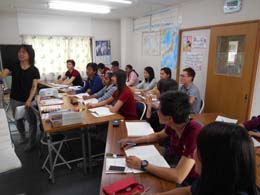 | | Students will efficiently learn Japanese in a short period. Students’ Japanese ability will develop, living in Japan and attending classes every day.
| Through learning Japanese, students will raise their basic knowledge and information, liberal arts, international understanding to the “standard of advanced countries.”
Classes are held for four hours a day or 20 hours a week. The teacher in charge will teach students every day to confirm their level of study and relay relevant information among the teachers, so that education of the students may become all the more efficient.
| |
|
The key is our Japanese classes.
Mizuno School is proud of quality education by professional Japanese teachers. | 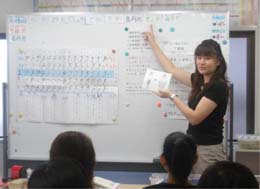 | | Mizuno School is proud of providing “coherent and quality education” based on each teacher’s specialty and career. | Basic Course:
Students will study Japanese through Japanese. Students will study together with those from many other countries. They will learn Japanese happily and naturally just as babies do. They will learn the language not only through head but also using their body. | By repeating the words many times, they will learn the language and naturally use it.
Goal: Passing Japanese Language Proficiency Test N4 and N5 | 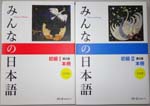 | |
Intermediate Class
Students will come to understand vague Japanese expressions in the flow of conversations. | They will be able to widen Japanese expressions and speak with emotions.
Goal: Passing Japanese Language Proficiency Test N3 and N2 |  | |
Advanced Class I
Students will become able to read the text in various fields and get information through Japanese. They are hopefully reaching the level to understand the lectures in universities.
Goal: Passing Japanese Language Proficiency Test N1
Advanced Class II & III
Most of the materials are original. Using newspapers, magazines, books, animations, films, documentaries, modern stories, classics, etc., students will study Japanese used in various fields. They will get the latest information about various fields. | |
|
Career Guidance and Counseling
What do you want to do in your future? | 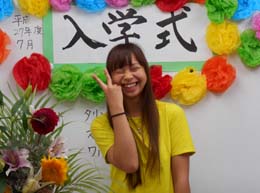 | School guidance starts with students’ asking themselves “what they want to do” in the future.
That is followed with selecting universities/colleges they want to study, making applications, attending preparatory classes for the examinations, practicing for interviews, for the examinations, practicing for interviews, etc. | | It is indispensable for them to believe in themselves of “passing exams” and keep making efforts to realize their dream without giving up. | |
|
An International Society, though Small!
Why don’t you design your future with us? | | Students will experience an international society, though small, in our school. The teachers, of course, are all Japanese. Classmates are students from a variety of countries. The common language for communication is Japanese. | |
|
| Four Seasons: Spring, Summer, Autumn and Winter | 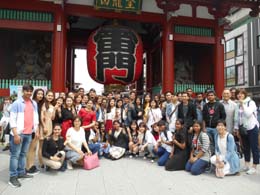 | A variety of events and extra-curricular activities are held from time to time amid strict and earnest class hours.
While enjoying the transitions of the four seasons typical to Japan,students can deepen relations and friendship among themselves and with teachers. | | On such occasions, students will come to know Japanese society, traditions and customs. | |
|
| Students’ Life in Tokyo | 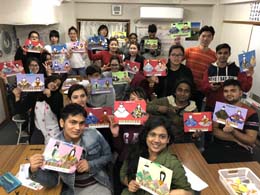 | Life Guidance – We will support all the aspects of life in Japan.
Please feel free to consult the problems that may arise living in Japan, including relations with Japanese, part-time jobs, visa, insurance, housing, mental problems. etc.
Our school is open for a limited number of students. It | | makes the relations between the school staff and students close. All the school staff are teachers and think about the wellbeing of the students. We focus on the issues from the educational point of view and try to solve the issues, if any. There is a teacher in charge for each class, who teaches every day to stay close to the students. | |
|
| Economy of Student’s Life: | 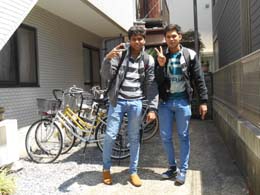

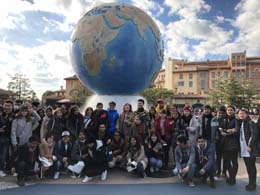
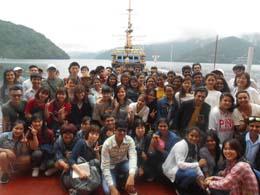 | It is essential for students to stand on their feet economically, after coming to Japan.
1. Expenses needed for entry to Japan and the school
Selection and tuition fee at entry: \715,900
Beddings at entering the dormitory: \6,000
Transportation by train from Narita Airport to the dormitory: \1,330
Textbooks: \5,000
*Other possible expenses may include expense for preparation at home, air fares, etc.
2. Tuition fees (for two years) before entry to university
One year later: tuition fee for the next 6 months: \293,300
One and a half year later: tuition fee for the next 6 months: \280,800
2 years later: college entrance examination: \30,000 per college
Tuition fee at entering university/college: \800,000
3. Monthly living expense (in case staying at a dormitory in Ichikawa City)
Dormitory expense \30,000
Utility (actual cost): \5,000
National Health Insurance: \1,300
Foods, phone, books, etc.: \30,000 ~
By working part time, students will not only support their own life, but also contribute to the Japanese society as foreign labor.
| Dormitory
The apartment located within 10 minutes’ walk from school are rented as dormitories. When students live in the dormitories, they will feel easy and use their time effectively. The school will cope with emergencies.
It is not allowed to leave the dormitories before the agreement expires. Beddings are at students’ expense. The dormitories are furnished with kitchen, toilet, bathroom, air-conditioning equipment, refrigerator, washing machine, table, bookcases, etc.
| 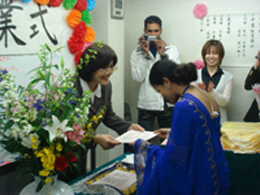 | Part-time Work
Part-time work offers students the chance not only to earn their living, but also to come to know the Japanese work ethics, corporate philosophy, etc., while using Japanese as a communication tool.
Students are allowed to work 28 hours at the maximum per week, that is 112 hours per month. They may earn \1,000 to \1,200 per hour according to the work type, work hours and Japanese language ability. If they can continue to work for a certain place, they may earn some \120,000 to \160,000 per month. | Tokyo The Metropolitan Area
Gyotoku is conveniently located at Tokyo Bay Area. It takes only 16 minutes by subway from Tokyo Station. It takes about an hour from either Narita Airport or Haneda Airport. Gyotoku is a seaside town of sea breeze. | 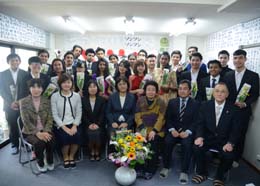 | |

















